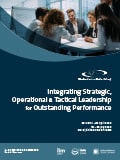An intensive professional development training course on
Project Cost Estimating, Budgeting
& Value Engineering Skills
Why Choose this Training Course?
The Course
The decision to proceed with a project is often based almost exclusively on early conceptual cost estimates, and these estimates provide the basis for the cash flow projections and budget forecasts used during the project feasibility study. Unreliable cost estimates can result in significant cost overruns later in the project life when it is too late to contain them. As potential projects are considered, management not only requires costs estimates of high accuracy, they seek opportunities to reduce life-cycle costs, improve budget accuracy and optimize whole-life project value.
Determining which estimation method to use, at each stage of project development, depends on the information available at the time of preparation and its desired accuracy. Besides, decisions regarding optimising project costs without sacrificing quality or functionality are highly dependent on the use of a set of systematic and logical procedures and techniques to enhance the whole-life project value.This course will provide the delegates with the necessary skills needed for accurately estimating the total cost of their proposed projects, eliminating unnecessary costs, linking cost estimates to selected procurement methods, and enhancing the overall value of project delivery. The course offers a series of estimating techniques and processes to forecast accurately the anticipated costs of projects with a focus on budget estimates, estimates for pre-construction services, estimating contractor and sub-contractor work, estimating general conditions, pricing self-performed work, estimating negotiated contracts, and performing lump-sum and unit-price estimates.
The course also presents the value engineering methodology which emphasizes the return-on-investment aspect of decision-making in terms of life cycle costs during project planning, procurement and execution. This methodology can be used to identify alternative ideas/solutions at any project phase to produce the client’s best value requirements. Within the project management context this course significantly enhances cost estimating, budgeting, creative thinking, problem solving, and informed decision-making skills.
The Structure
This comprehensive programme consists of two modules which can be booked as a 10 Day Training event, or as individual, 5 Day courses.
Module 1 - Project Cost Estimating Skills
Module 2 - Value Engineering Skills
The Goals
The primary objectives of the programme are to help delegates to:
- Gain knowledge of techniques used in project estimating, from the conceptual stage to the final detailed estimate
- Understand the different types of estimates used to accurately and progressively estimate project costs
- Understand the different types of contracts based on the distribution of risk between contracting parties
- Effectively apply incentive arrangements to get the best results from the contract
- Understand the fundamental concepts of Value Engineering and Analysis
- Understand how value engineering supports effective project management by providing a continuous thread of good practice throughout the project development process
- Appreciate the level and nature of the information needed to develop a project scope
- Gather and organize information and cost relevant to key elements of the project
- Learn how to capture and incorporate stakeholders’ input in the development of the project charter
- Report effectively to top management and project stakeholders in the context of proposing alternatives that improve the overall project value
- Demonstrate proficiency in applying life-cycle costing principles
- Objectively present a convincing case in support of certain project alternatives.
The Delegates
This course is designed for all those responsible for making significant decisions concerning costs, plans and budgets for large and complex projects. Project managers, project cost estimators, cost controllers, project planners, contract professionals, and project procurement staff will find this course highly relevant.
The course should also be of interest to anyone involved in project initiation, project estimating and budgeting, and development as well as critical assessment of project cost proposals in client and contracting companies.
The Process
The course is a mixture of speaker input, case studies and practice exercises which will be used to facilitate group discussion. Delegates will gain detailed knowledge of estimating and value engineering concepts and techniques by active participation in the exercise/training sessions. Through lectures, case studies and practical exercises, delegates will focus on the relevant key concepts, terms, and principles necessary for realistically estimating and optimizing project costs.
The Benefits
Organizations will be better prepared in relation to how they:
- Apply a consistent and streamlined project cost management process according to best practices
- Utilize information from previous projects and industry standards to estimate costs for a new project.
- Master the application of cost estimating tools and techniques in order to improve all levels of project estimating and control in the organization.
- Effectively incorporate risk in cost estimation to provide a more realistic cost baseline which will be used to monitor cost performance during project execution.
- Form and instill common understanding among multi-disciplinary teams,
- Focus the efforts on the purposes behind the project.
- Adopt and apply a structured approach, tested and successful procedures that are directed toward achieving success in meeting the purposes for the "project" by all involved.
The Results
Delegates attending this course will be able to:
- Integrate all relevant project elements into a cohesive and comprehensive cost estimate
- Prepare budget estimates that will enable the owner-organization to make informed decisions as to the feasibility of a potential project
- Compare the costs of alternative strategies or technical approaches to ensure the most economical project at the desired level of quality
- Structure the contract compensation arrangement to provide the highest level of incentives to complete the project on schedule and within the determined budget
- Keep accurate control of the progressive budgeting process based on the various stages of design
- Prepare accurate budget estimates through the programming phase, the schematic design phase, and finally the design development phase
- Compare the costs of alternatives to ensure the most economical project at the desired level of quality
- Understanding the most appropriate contracting structure to ensure the desired project results
- Apply proper risk analysis to effectively mitigate risks at minimal costs, and to determine appropriate contingencies for residual risks
- Obtain the skills required to prepare and manage the bidding process
- Prepare lump-sum, unit-price, cost plus, and time-and-materials estimates and contracts
- Keep accurate control of the progressive budgeting process based on the various stages of design
- Manage the interface between many value-adding project phases and management expectations
- Apply systematic and innovative methodology with multi-disciplinary approach to achieve better value and cost optimization for projects.
The Course Content
Module 1: Project Cost Estimating Skills
Day One
Framework for Applying Value Engineering in Projects
- Defining Value and Value Engineering concepts and principles
- How and when is Value Engineering applied?
- Project definition through stakeholder analysis and management
- Team player styles
- Identifying relationships between Value, Cost and Worth
- Overview of Different Value Engineering Phases
Day Seven
The Function Analysis Phase - Expressing Project Functional Needs and Constraints
- The Information Phase – steps and procedures
- Developing Value Engineering Job Plan
- Defining project constraints
- What is function analysis and Function-Cost-Worth Analysis
- Developing FAST Diagrams to identify critical project components
- Cross-Functional Project Team Approach
Day Eight
The Creative Phase - Inspiring Creativity in Your Project Team
- Creativity and Creative thinking within the project environment
- Creative thinking techniques
- Reaching consensus and leveraging the power of project team collaboration
- Project risk perception and identification
- Identifying priorities through paired comparison
- Output of the Creative Phase
The Evaluation Phase -Making Informed Project Decisions
- Project evaluation methods
- Performing project risk and scenario analyses
- Life-cycle costing techniques
- Incremental benefit-cost analysis for project evaluation
- Effective Decision-making in project environment
- Output of the Evaluation Phase
Day Ten
The Planning and Reporting Phases -Getting Results through Effective Communication
- Develop and assess VE proposals to optimize project value
- Action planning roles and responsibilities
- Reporting VE findings to Senior Management and project stakeholders
- Incorporating VE into the early project phases
- Integrating VE with Continuous Improvement Techniques
The Certificate
- AZTech Certificate of Completion for delegates who attend and complete the course
DO YOU WANT TOLEARN MORE ABOUT THIS COURSE?
© 2024. Material published by AZTech shown here is copyrighted. All rights reserved. Any unauthorized copying, distribution, use, dissemination, downloading, storing (in any medium), transmission, reproduction or reliance in whole or any part of this course outline is prohibited and will constitute an infringement of copyright.







